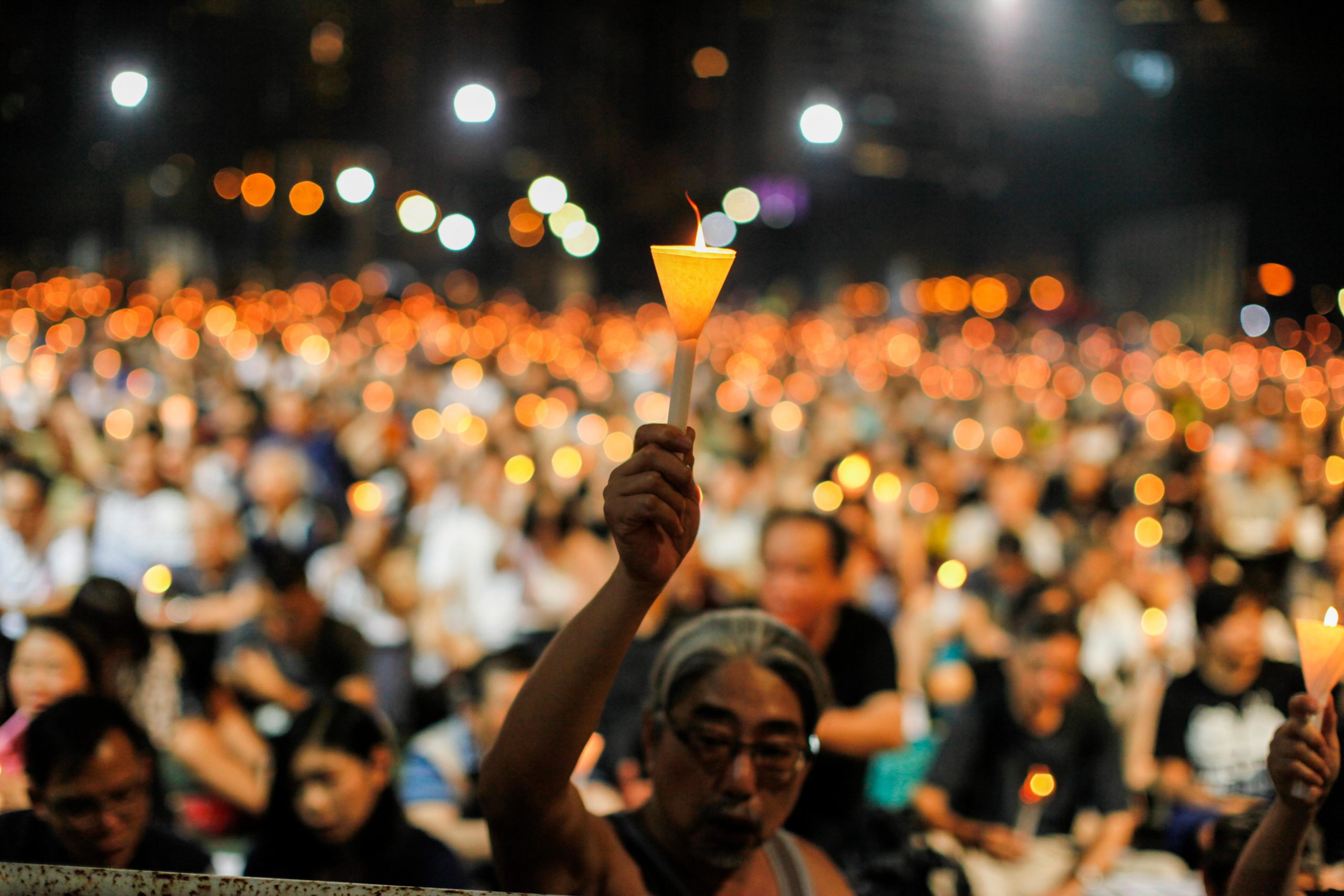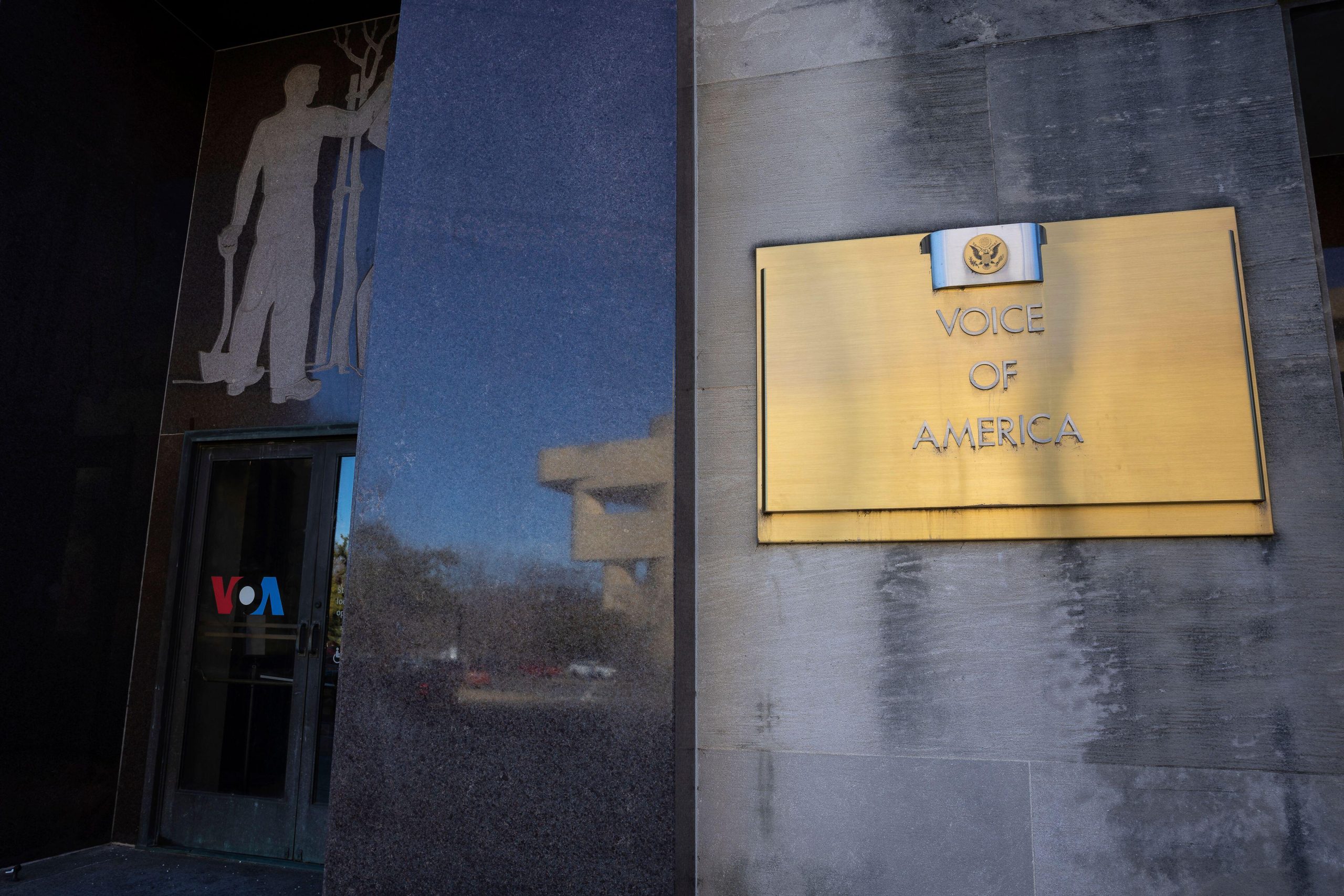[vc_row][vc_column][vc_single_image image=”116835″ img_size=”full” add_caption=”yes”][vc_column_text]For 30 years in a row after the 4 June bloodshed in Beijing, Hong Kong people had turned out en masse at Victoria Park, the city’s central park, to commemorate the victims of the killings at and around Tiananmen Square in the summer of 1989.
The regular June scenes saw marked changes last year. The imminent enforcement of a national security law scheduled for 1 July 2020 and a government ban on assembly on grounds of the Covid-19 epidemic cast a long shadow over the annual vigil. Still, thousands of people came out, holding candlelights and vowing “not to forget 4 June”.
Citing social distancing rules again this year, the Police rejected the application for a march planned for 30 May and an assembly at the park on 4 June to mark the 32nd anniversary.
The Hong Kong Alliance in Support of Patriotic Democratic Movement in China (Alliance), an umbrella body composed of pro-democracy groups which holds the vigil every year, has announced they will not hold any event at the park in the evening of 4 June.
More than 20 democrats, including leaders of the Alliance, who took part in last year’s candlelight vigil last year, were convicted of participating in unlawful assembly. They were given jail sentences of up to 14 months.
The remaining Alliance leaders will no doubt be arrested and face at least the same charge if they turn up at the park on 4 June. Worse, they may be charged with subversion under the national security law.
Alliance leaders advised people to commemorate the victims in a safe and peaceful manner.
Media reports quoted anonymous sources close to the government warning people not to wear black clothes – a regular form of portest – and not to hold up candles at and near Victoria Park. First, they may breach the social distancing rules. Mort importantly, they may be charged with unlawful assembly if they are deemed to have the same purpose in public places.
As this article goes to press, the city is laden with an air mixed with anger and fear, persistence and helplessness.
Following the harsh sentences of democrats convicted of unlawful assembly and the enactment of the national security law, fear has swept the city. Calls for a democratic China and an end of one-party dictatorship that resonated in earlier 4 June vigils could now be deemed as subversive.
Although the majority of people still believe they are on the right side of the history of the 4 June crackdown and must persist in holding up the candle of hope, they feel helpless in stopping the government crackdown on commemorating the anniversary.
Last Wednesday, the operators of the 4 June Museum run by the Alliance closed its doors, hours after officials from the Food and Environmental Hygiene department accused it of operating as a place of public entertainment without the required licences.
The museum reopened briefly on Sunday to mark the 4 June anniversary; it may never reopen again.
Founded at the heyday of the student-led movement in 1989, the Alliance’s days are seemingly numbered. Pro-Beijing political figures and media have put more pressure on the Government to ban the Alliance on grounds that its call for an end of one-party dictatorship in its manifesto is subversive.
Its disbandment is no longer a question of if, but when.
This is not so much because the Alliance has or will pose any real threat, nor embarrassment, to the ruling Chinese Communist Party. It can be argued that the opposite is true. That it was allowed to exist has provided a real-life case study that showed the world how the policy of “one country, two systems” worked.
Except for the much-smaller scale of commemorations in Taiwan, Hong Kong had been the only place in mainland China where people were allowed to commemorate the Tiananmen massacre.
Tolerance of the communist authorities towards 4 June commemoration, and indeed a free Hong Kong, has now run out.
With hindsight, the authorities feel they were wrong to have given too much freedom to Hong Kong people. As a result of that, many, in particular young people, have kept testing Beijing’s tolerance by crossing the political “red lines”, referring to politically sensitive issues such as independence and self-determination as well as challenging the system of government and their governance.
The protracted territory-wide protests sparked by a bill on extradition in 2019, followed by a landslide victory of the democrats in the district council elections in November that year, have shocked Beijing. They responded by imposing the national security law and overhauling the election system to make sure the city is run by Beijing-trusted patriots.
With democracy scuttled and freedom curtailed, the 4 June candlelights, described by Nancy Pelosi, US House Speaker, as “a beautiful sight to behold”, may now become history, testifying the end of “one country, two systems.”[/vc_column_text][/vc_column][/vc_row][vc_row][vc_column][three_column_post title=”You may also want to read” category_id=”85″][/vc_column][/vc_row]





